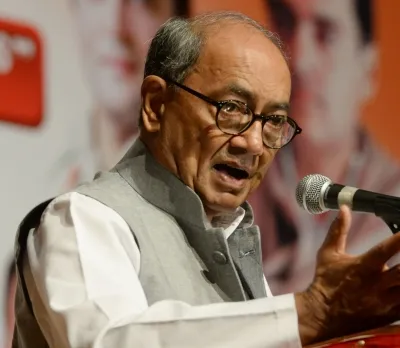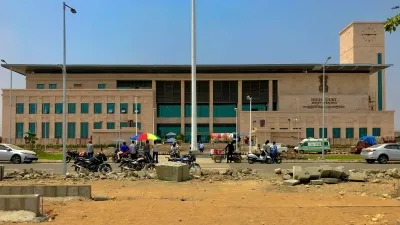Are the Four Labour Codes the Most Progressive Reforms for Workers Since Independence?

Synopsis
Key Takeaways
- The Four Labour Codes significantly enhance worker rights in India.
- Employers are now required to issue appointment letters to all workers.
- Social security coverage has been expanded to include all workers.
- Women now have the right to work at night across all sectors.
- Compliance for businesses has been simplified with a single registration process.
New Delhi, Nov 21 (NationPress) Prime Minister Narendra Modi stated on Friday that the government has implemented the Four Labour Codes, which are recognized as some of the most extensive and progressive labour-centric reforms since the nation attained independence.
"These reforms significantly empower our workforce. They also simplify compliance and enhance the Ease of Doing Business," remarked the Prime Minister.
He emphasized that these Codes will lay a robust foundation for universal social security, prompt payment of wages, safe working environments, and rewarding opportunities for all citizens, particularly 'Nari Shakti' and 'Yuva Shakti'.
"This initiative will cultivate a future-ready ecosystem that safeguards workers' rights while bolstering India's economic development. These reforms are set to propel job creation, enhance productivity, and accelerate our progress towards a Viksit Bharat," he added.
The Four Labour Codes consist of the Code on Wages, 2019, Industrial Relations Code, 2020, Code on Social Security, 2020, and the Occupational Safety, Health and Working Conditions Code, 2020, effective from November 21, which rationalizes 29 existing labour laws.
With the enactment of these Labour Codes, it is now compulsory for employers to provide appointment letters to all workers, establishing written documentation that fosters transparency, job security, and stable employment. Previously, there was no requirement for mandatory appointment letters.
Under the Code on Social Security, 2020, all workers, inclusive of gig and platform workers, will receive social security benefits. All workers will now qualify for PF, ESIC, insurance, and additional social security advantages, compared to the limited coverage that existed earlier.
According to the Code on Wages, 2019, every worker is entitled to a statutory minimum wage, ensuring timely payment that guarantees financial security. Previously, minimum wage laws applied only to specified industries, leaving many workers without coverage.
The Labour Codes also mandate that employers offer free annual health check-ups to all workers over 40 years old, fostering a culture of preventive healthcare. Prior to this, there was no legal obligation for employers to provide such health check-ups.
Additionally, the reforms require employers to dispense wages punctually, which enhances financial stability, alleviates work-related stress, and boosts workers' overall morale. Previously, there was no compulsory compliance for timely wage payment by employers.
The new legislation allows women to work during night hours and in all job sectors, contingent on their consent and appropriate safety measures. This will also enable women to access higher-paying roles. Previously, women faced restrictions on night shifts and certain job categories.
The new codes also broaden ESIC coverage and benefits throughout India – it will be voluntary for establishments with fewer than 10 employees but mandatory for those with even one employee engaged in hazardous processes.
Social protection coverage will now encompass all workers. Previously, ESIC coverage was restricted to designated regions and industries, with establishments employing fewer than 10 workers typically excluded, and those involved in hazardous activities lacking uniform mandatory ESIC coverage.
Moreover, the codes alleviate the compliance burden on workers by providing for a single registration, a nationwide single license, and a singular return. Previously, multiple registrations, licenses, and returns across various labour regulations were necessary.









